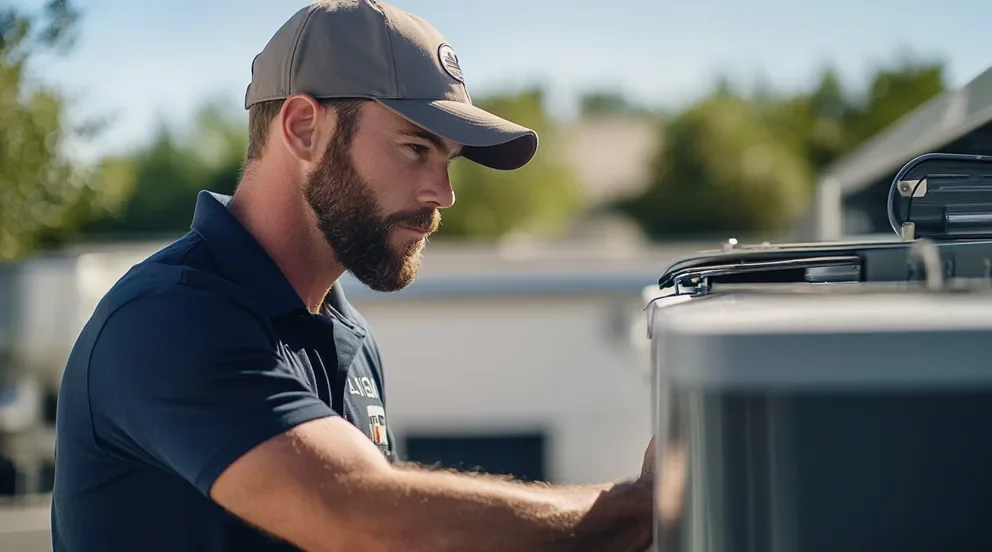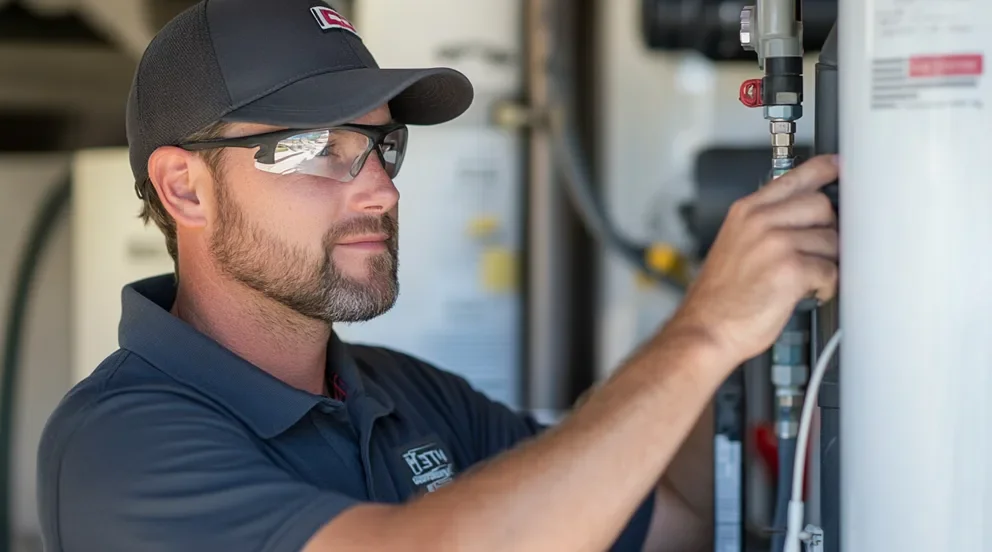Central to modern living, HVAC programs encapsulate the principles and practices involved in Heating, Ventilation, and Air Conditioning systems. Trainees study the complex infrastructure that maintains interior climate control and air quality. As a discipline, it is a fusion of theories from thermodynamics, fluid mechanics, and heat transfer, critical for effective domestic and commercial applications.
Their significance sprouts from the necessity of regulating environments for human comfort, resource preservation, and operational efficiency. Skilled professionals emerge from these programs ready to design, install, diagnose, and repair intricate networked systems. A blend of practical sessions with theoretical coursework also ensures that craft meets the ever-evolving technology enhancements in the field.
As ecological concerns take center stage, modern HVAC programs have pivoted to include sustainable methods and renewable technologies. This translates into a curriculum steeped in green solutions, aligning with global movements towards minimized carbon footprints. These robust programs, thus, become cradles of innovation within the industry.
Understanding HVAC systems is no small feat, given their central role in ensuring comfort and safety within contemporary structures. As the backbone that discreetly supports our enclosed spaces, these systems are crucial cogs in the machine of modern-day construction. Efficiency, cost, and environmental impact considerations drive continual renovations in the HVAC field.
Rightly, the pivotal roles these setups play in daily life spark a fascination to comprehend their functioning among consumers and professionals alike. Likewise, with advancements come the necessity for skilled technicians who carry in-depth understanding anda knack for adapting to innovations in this domain. Behind all façades of towering skyscrapers and cozy homes heavily relies the regulation provided by calibrated HVAC technologies.
Content:
- Clearing the Air: Breaking Down the Complexities of HVAC Programs
- Unravelling the Intricacies of HVAC Programs: An In-Depth Insight
- Chilling Facts: A Comprehensive Guide to HVAC Programs The Industry Doesn’t Tell You
- Heating Up the Conversation: Demystifying HVAC Programs Around Us
- Facing the Fan: A User’s exploration of HVAC Management Programs
Delving into the profound impact of HVAC machinery places weight on the shoulders of architects, building managers, and strategy developers. Managing energy consumption while enhancing human comfort invites not just expertise but also moral responsibility to safeguard our collective future. As such, the discourse on HVAC systems elevates beyond technical dialect into a nuanced narrative on sustainable habitation.
Clearing the Air: Breaking Down the Complexities of HVAC Programs
Heating, Ventilation, and Air Conditioning (HVAC) systems are pivotal in maintaining comfortable indoor environments. However, understanding these systems’ intricacies can be daunting for many. Typically, an HVAC program starts with fundamental thermodynamics principles. It then progresses to include various components like heaters, coolers, and ventilators. HVAC programs are designed to educate individuals on effectively managing these complex systems.
Industry professionals often undergo extensive training in HVAC programs. That’s because the design and installation of these systems require precision. The knowledge of materials, airflow dynamics, and system controls are integral parts of the curriculum. Such programs also harp on the importance of regular maintenance to ensure longevity and efficiency. Graduates are expected to make informed decisions in real-world applications.
Furthermore, regulations and environmental concerns shape these programs’ structure. They aim to produce specialists who can design energy-efficient and sustainable systems. HVAC curricula are updated to reflect new codes and technological advancements. Instructors emphasize eco-friendly practices and energy conservation within courses. This focus is key to meeting current and future environmental challenges.
Additionally, HVAC systems intersect with information technology in modern applications. Programs now include lessons on smart thermostats and building automation systems. Innovative approaches like these equip students with the necessary skills to manage advanced HVAC systems. Specialized software knowledge forms a critical component of contemporary HVAC training. It underscores the evolution of such systems in our digital age.
To conclude, HVAC programs unravel the complexities of indoor climate control systems. They offer in-depth knowledge and hands-on experience to aspiring professionals. The goal is to ensure comfort, efficiency, and sustainability in building designs. These programs continue to evolve, paralleling technological advancements and environmental awareness. The air might be clearer now that we understand the meticulous training behind HVAC mastery.
Unravelling the Intricacies of HVAC Programs: An In-Depth Insight
HVAC programs are a labyrinth of technical expertise, combining engineering principles with practical skills. They start with the basics of mechanical engineering and branch out into specialized areas. Students delve into the physics of thermodynamics and fluid mechanics. These core subjects form the foundation of HVAC systems and are indispensable for a thorough understanding.
One cannot overstate the importance of hands-on training in HVAC programs. Labs and workshops complement classroom instruction, providing real-world experience. Students get to work with actual HVAC components and tools. They learn how to troubleshoot and repair different types of systems. This practical knowledge is critical for students to become competent technicians.
Theoretical courses are bolstered by coursework in project management and customer service. They prepare students to manage HVAC projects from start to finish. Besides the technical know-how, soft skills like communication and teamwork are also honed. These are essential for dealing effectively with clients and colleagues. HVAC education is, thus, a blend of various competencies.
As technology advances, so do HVAC programs. Newer models of these systems are more energy-efficient and connected. This evolution influences the need for updated education to tackle today’s challenges. Students are taught about the latest in energy-saving features and IoT integration. This knowledge is vital for the modern HVAC specialist to keep up with industry trends.
In sum, HVAC programs dissect the nuances of maintaining optimal indoor climates. They balance theoretical lessons with practical applications, preparing students for a variety of scenarios. Moreover, they stress the importance of soft skills and stay abreast with technological advancements. These comprehensive offerings ensure graduates are well-prepared to excel in the HVAC industry.
Chilling Facts: A Comprehensive Guide to HVAC Programs The Industry Doesn’t Tell You
HVAC programs reveal many industry secrets, often untouched by mainstream knowledge. They impart more than just the mechanics of heating and cooling. There’s an emphasis on critical thinking and problem-solving skills. Students explore beyond the basic functions to discover energy consumption patterns and ways to improve them. Programs are designed to foster HVAC innovators, not just maintainers.
The curriculum is rich with topics on sustainability and environmental impact. Education on refrigerants and their global warming potential is a massive part of this. Understudies learn about alternative eco-friendly options. The goal is to groom professionals who can make conscious, impactful decisions. It’s not merely about complying with regulations, but about spearheading responsible practices.
Programs are also very upfront about the challenges in the field. Diving into various installation scenarios, they prepare students for unexpected complications. There’s a focus on adaptability and resourcefulness. Experienced tutors share real-life cases to instill a sense of readiness. Understanding how to circumvent potential obstacles is crucial for success.
Technical savvy is complemented by managerial competencies in these programs. It’s essential for HVAC professionals to navigate projects, timelines, and budgets deftly. Additionally, they must be proficient in negotiation and client liaisons. The multifaceted nature of such programs produces well-rounded experts, capable of juggling diverse aspects of projects.
Overall, HVAC programs guide students through a comprehensive learning journey. They encompass a wide array of skills needed to lead in this field. Learning goes beyond standard installation and repairs. It’s about shaping the future of the industry through innovation and conscientiousness. A well-trained HVAC specialist is a custodian of both comfort and the environment.
Heating Up the Conversation: Demystifying HVAC Programs Around Us
HVAC programs are not merely technical courses; they are the backbone of our built environment’s comfort. They offer a wealth of knowledge about controlling interior climates. These programs blend scientific principles with the needs of modern living spaces. Students gain insight into how HVAC systems contribute to overall building efficiency and occupant well-being.
These programs dissect various system types, from residential to commercial scales. Students explore each system’s nuances, recognizing the unique demands of different settings. Rigorous training in system design and analysis forms a substantial part of the education. Such comprehensive study ensures professionals can craft customized solutions. Adapting to a specific building’s needs is key to effective HVAC management.
Advances in technology have propelled HVAC programs into the digital age. Automation and smart controls are integral parts of the curriculum. By understanding these components, professionals can enhance system performance. These programs no longer just cover mechanics; they extend into the realm of high-tech innovation. Progress in this domain demands that HVAC experts remain tech-savvy.
Ethical considerations and customer interactions are also emphasized. Programs teach the importance of ethical conduct in this field. They impress upon students the role of trust in professional relationships. Navigating customer expectations and delivering reliable service is vital. The strength of an HVAC expert’s reputation often rests upon these soft skills.
In conclusion, HVAC programs serve to demystify the complex world of climate control. They touch upon the diverse aspects required of modern-day professionals. Foremost is their balance of technical expertise with customer service skills. Whether it’s about tackling technological advancements or ethical matters, these programs prepare individuals to excel. This broad education is heating up the conversation around HVAC systems.
Facing the Fan: A User’s exploration of HVAC Management Programs
Users curious about how HVAC systems work can find clarity in management programs. These educational pathways aim to provide an in-depth understanding of system operations. They are comprehensive, touching on various components like air handlers, ductwork, and refrigeration cycles. Understanding these elements demystifies the process behind our everyday comfort controls.
HVAC management programs offer a holistic view of the industry’s inner workings. Technicians learn not just to repair but to optimize system performance. Energy efficiency becomes a central theme throughout the training. Students become adept at identifying wasteful practices and implementing cost-saving measures. This knowledge is vital for both personal and professional growth.
Courses delve into the technological advancements shaping modern HVAC systems. The inclusion of smart thermostats and automated sensors is addressed in detail. Users learn how to leverage these tools for enhanced living environments. The insight into such technologies prepares one for the future of home automation. It’s an ever-evolving landscape that requires continuous learning.
Communication skills are integrated into these programs’ curriculum. The ability to convey technical information effectively to clients is developed. Users are taught to bridge the gap between expert terminology and everyday language. This skill is crucial for anyone looking to manage HVAC systems accurately. It ensures that all stakeholders can make informed decisions about their climate control.
In essence, HVAC management programs offer users a doorway to a comprehensive understanding. They foster a well-rounded perspective, stretching from technical expertise to customer service. These programs provide the tools for enhanced system management. The education obtained equips individuals to face the complexities of HVAC systems head-on. It turns novice users into knowledgeable managers, ready to tackle any system they encounter.





